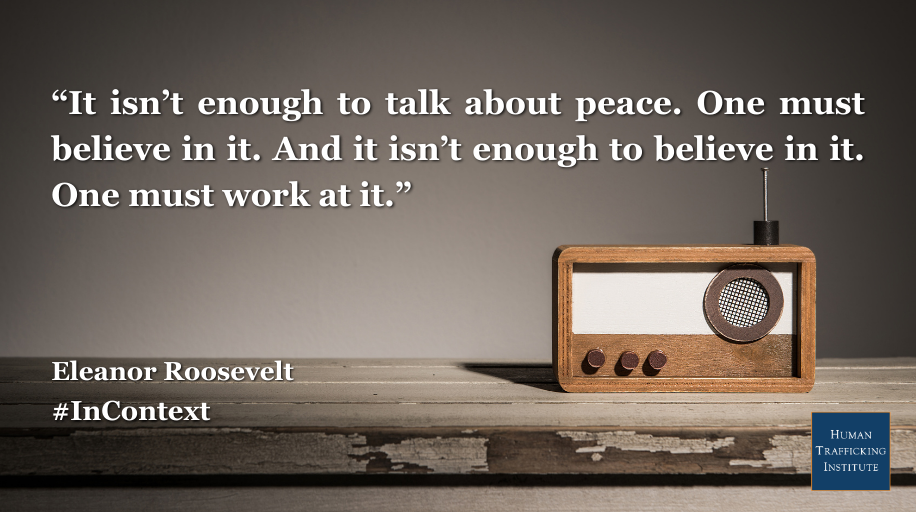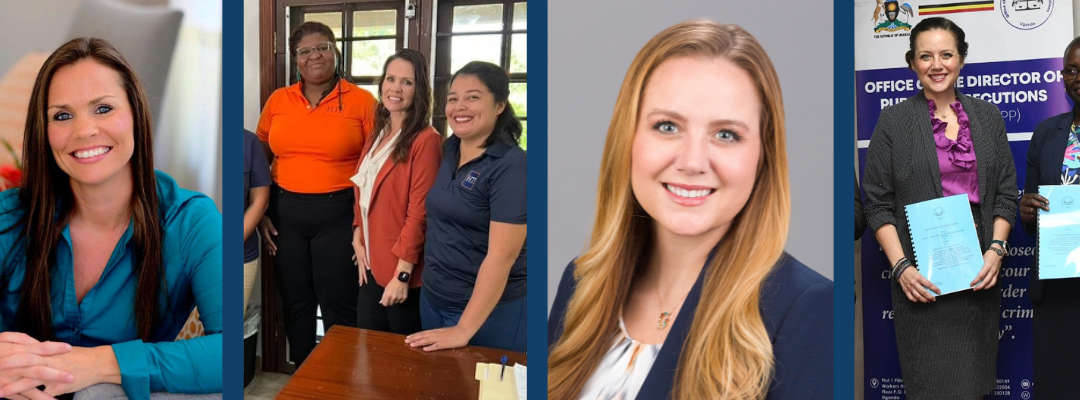From 1933 to 1945, Eleanor Roosevelt served as the First Lady of the United States alongside her husband, President Franklin D. Roosevelt. Serving as First Lady during the height of the Great Depression, Eleanor championed for many causes, including equal rights for women, the civil rights of African American, and fighting housing shortages and unemployment resulting from the economic crash.
Radio boomed in the 1930s. Between 1930 and 1940, the number of radios found in the American household jumped from 12 million to 28 million. With the increasing popularity of radio and broadcasting, Eleanor saw an opportunity to discuss and promote the causes she supported. It turns out Eleanor picked a good way to promote her humanitarian efforts, given radio’s vast impact on American society. Radio not only allowed for the widespread dissemination of news, but also created a sense of community and connectedness among the American people.
Starting in the early 1930s, Eleanor appeared on and hosted a number of radio shows. She first appeared as a guest on The Pond’s Dance Program, chatting about various responsibilities of women in, among many others, education, the home, and the workplace. As a host of her own programs she discussed a number of topics, from the role of women in society at the time to everyday events around the White House in her programs It’s a Woman’s World, and Talks by Mrs. Roosevelt. Eleanor also accumulated over 300 appearances on other shows and programs. She donated the proceeds she made off her show and guest appearances (up to $3,000 per appearance) to charities, including the American Friends Service Committee. Eleanor’s final program, Prospects of Mankind, ran from 1959 to 1962.
Eleanor was a frequent guest on the Voice of America broadcast for many years. VOA first aired in 1942 as a means to expose Nazi propaganda and spread information and news that was both neutral in voice and accurate. Today, VOA is still a popular news source for local and international news coverage. On the November 11, 1951, VOA broadcast, Eleanor asserted, “It isn’t enough to talk about peace. One must believe in it. And it isn’t enough to believe in it. One must work at it.” This came at a time when the United States was involved in the Korean War, the Cold War was still ongoing, and about halfway through the Second Red Scare.
Eleanor was fundamental in drafting the Universal Declaration of Human Rights, which was adopted unanimously by the UN General Assembly in December 1948. She served as the Chairperson for the Declaration following her appointment as a United States delegate to the Assembly by President Truman. The Declaration begins by stating: “All human beings are born free and equal in dignity and rights. They are endowed with reason and conscience and should act towards one another in a spirit of brotherhood.” The Declaration highlights fundamental human rights, equality between men and women, and compassion for humanity.
Mere words were not enough for Eleanor when it came to proposing equality among all races and genders–she took action. When the Daughters of the American Revolution refused to allow African American singer Marion Anderson to perform at Constitution Hall, Eleanor withdrew from the organization. Eleanor further helped to organize an Anderson concert at the Lincoln Memorial. When she held her own press conference as First Lady, Eleanor allowed only female reporters to attend.
Through her broadcasting and newspaper columns, Eleanor inspired people across the country and the world, especially women, to take up her humanitarian and equal rights causes.
Without action, the words that we put in place and call law are not enough. Like Eleanor, the Institute champions equality, the protection of human and civil rights, and empowering vulnerable populations. It is not enough to talk about a cause or believe in it–we have to work at it. The Institute combats human trafficking not only through words, but by embedding experts into other countries to create a self-sufficient system of action. If we follow Eleanor’s approach to advocacy, we can take action to decimate human trafficking.




